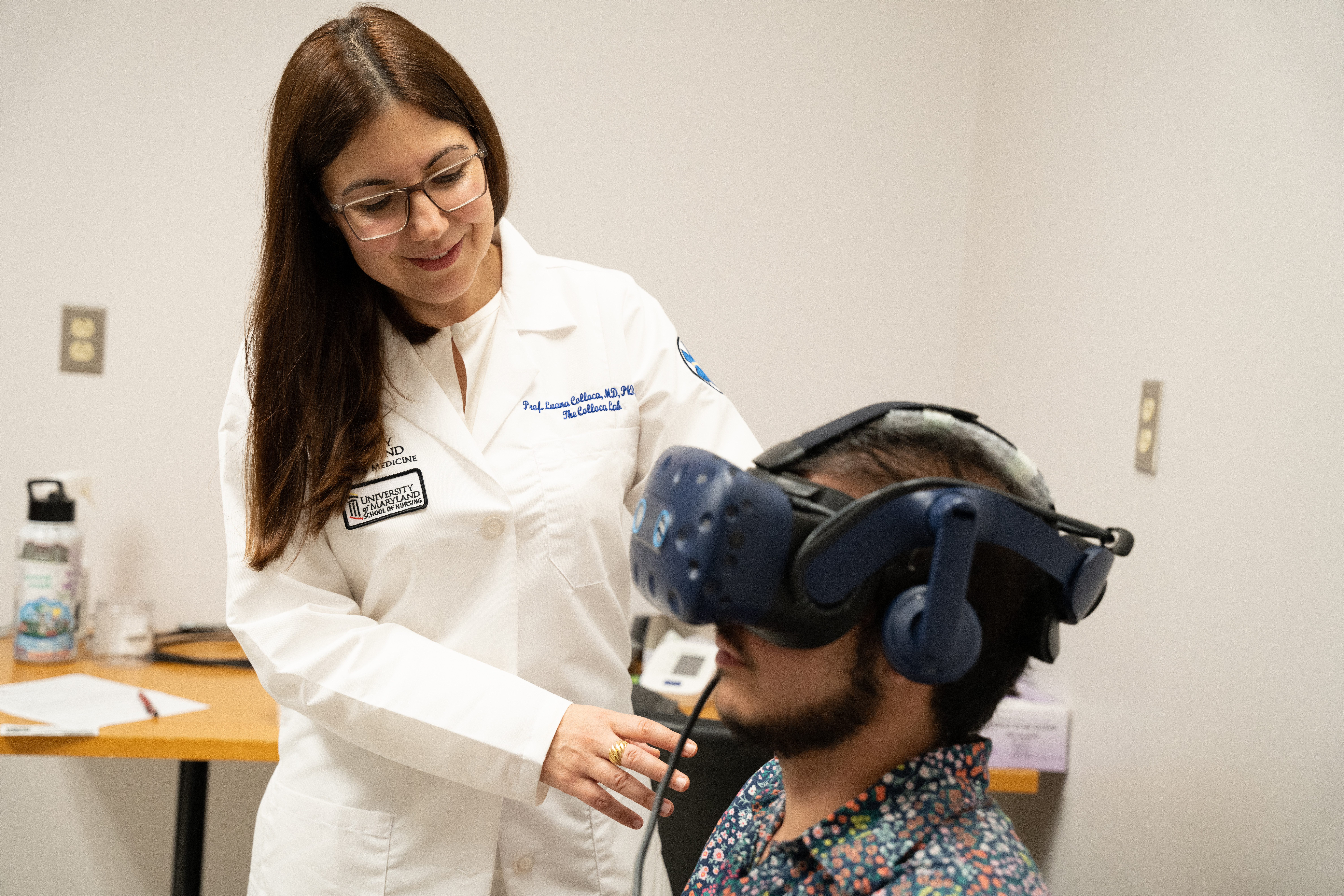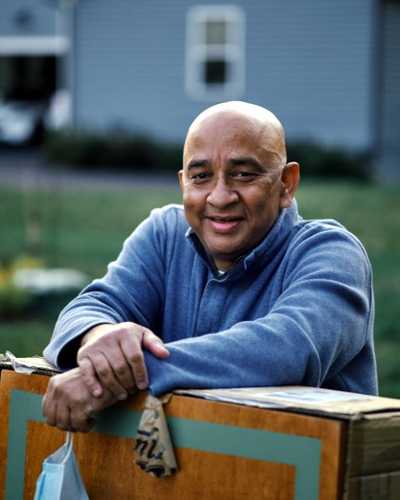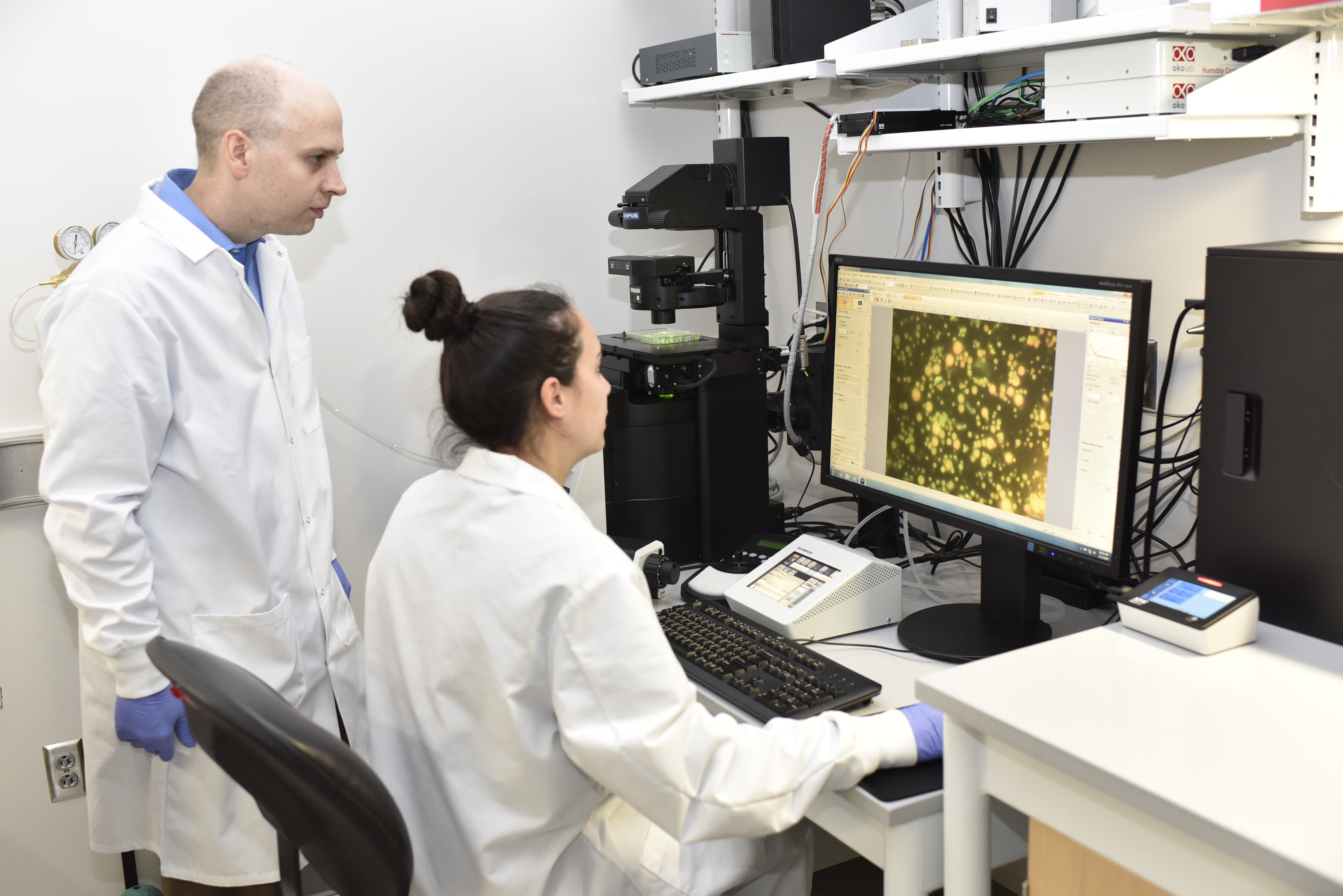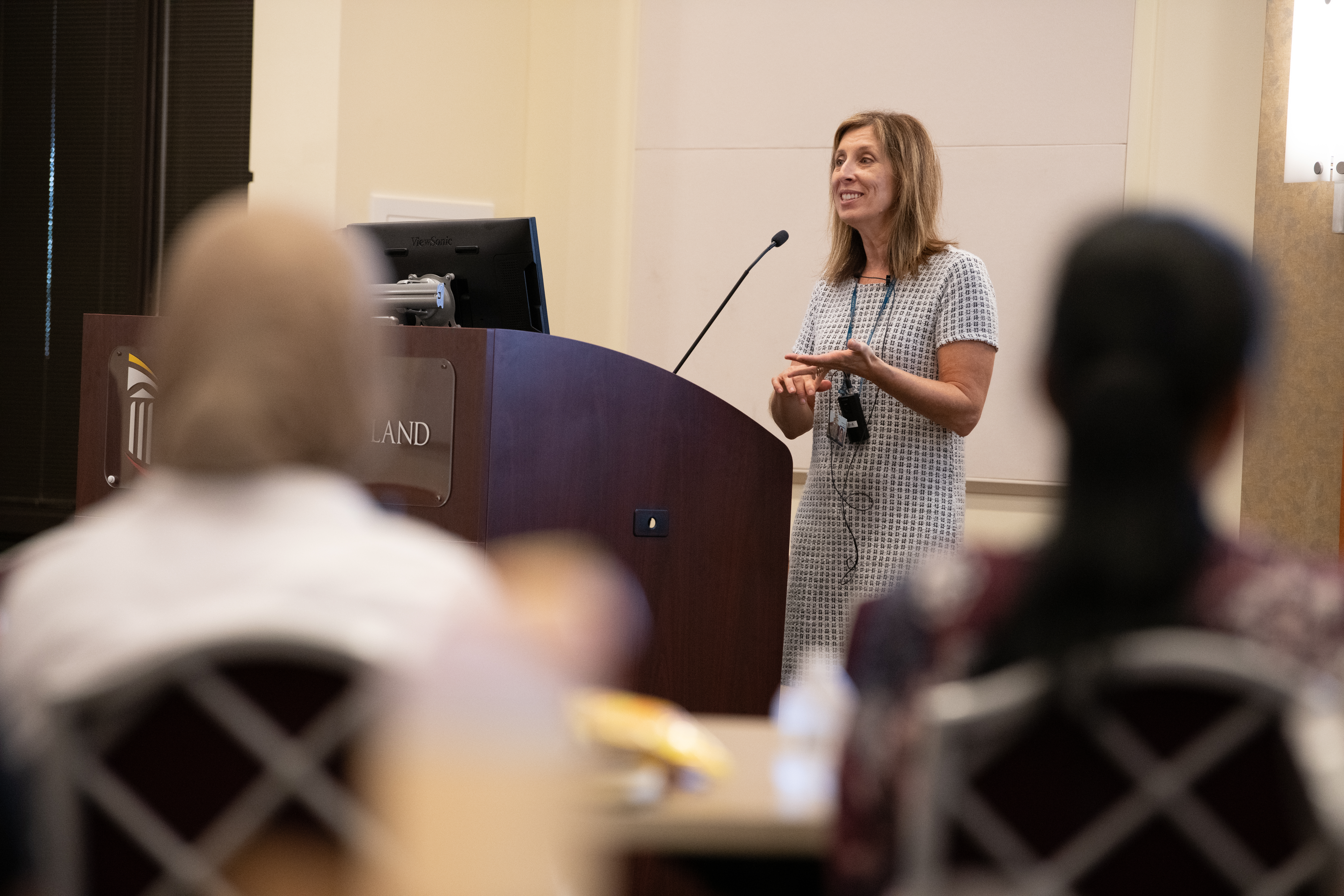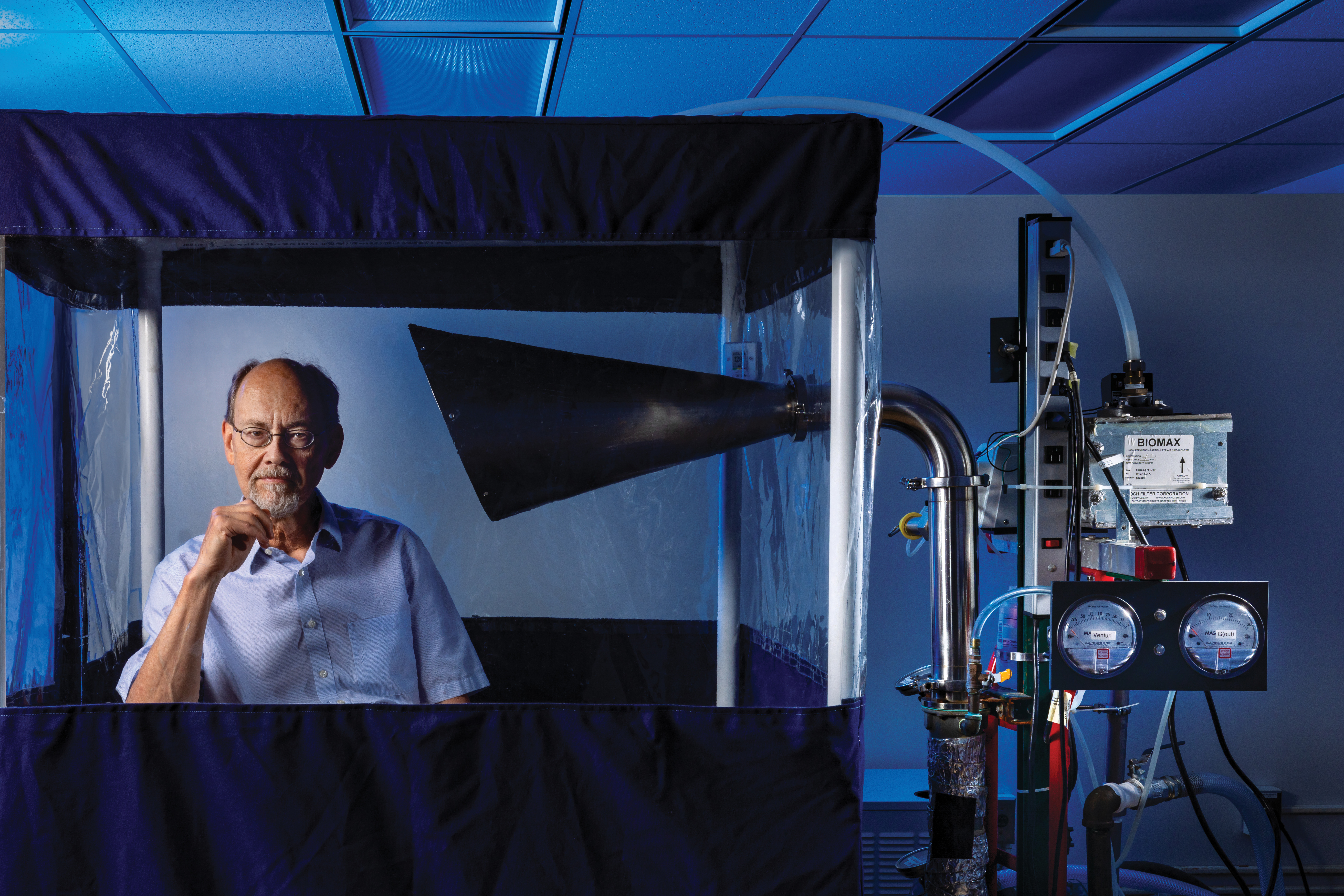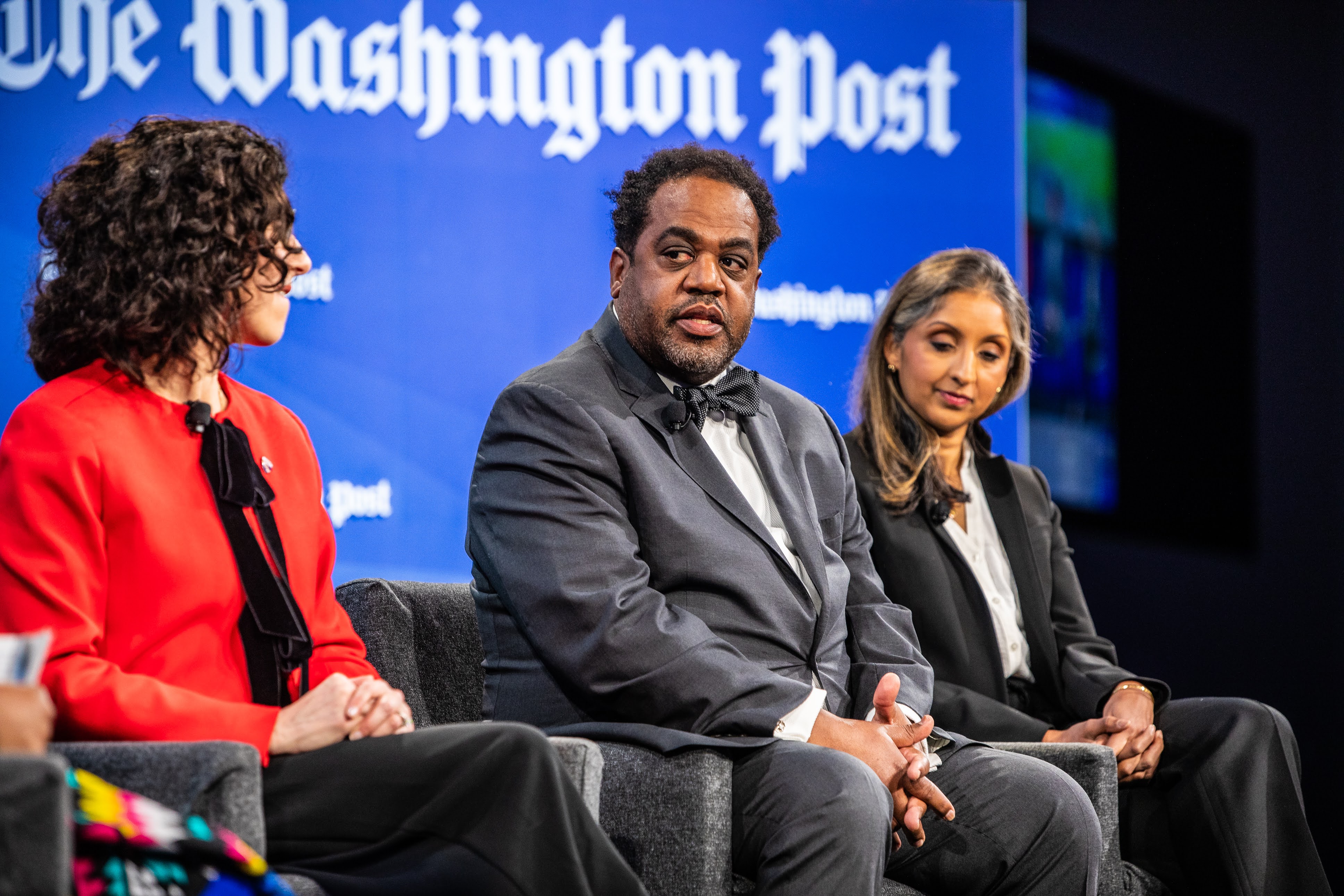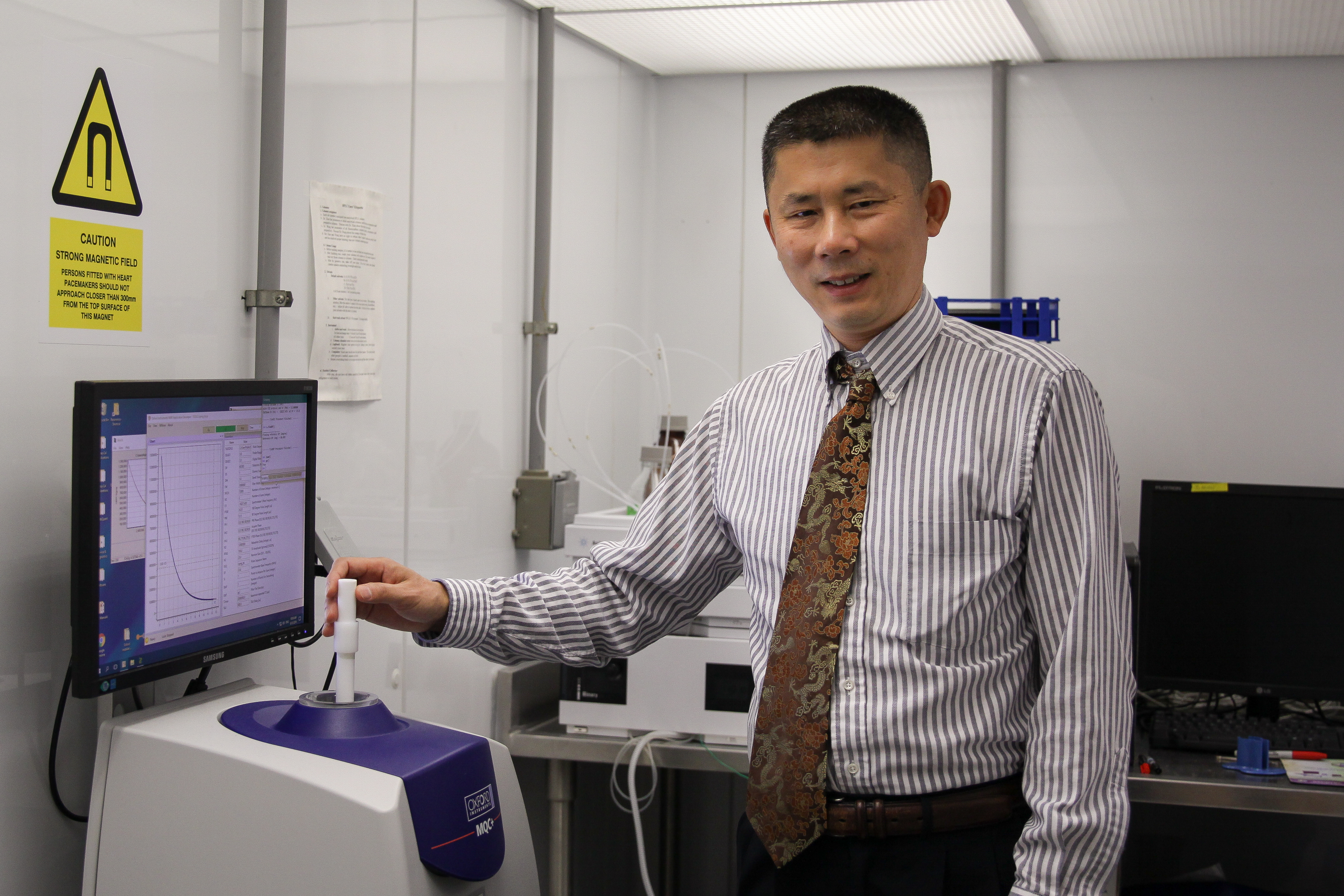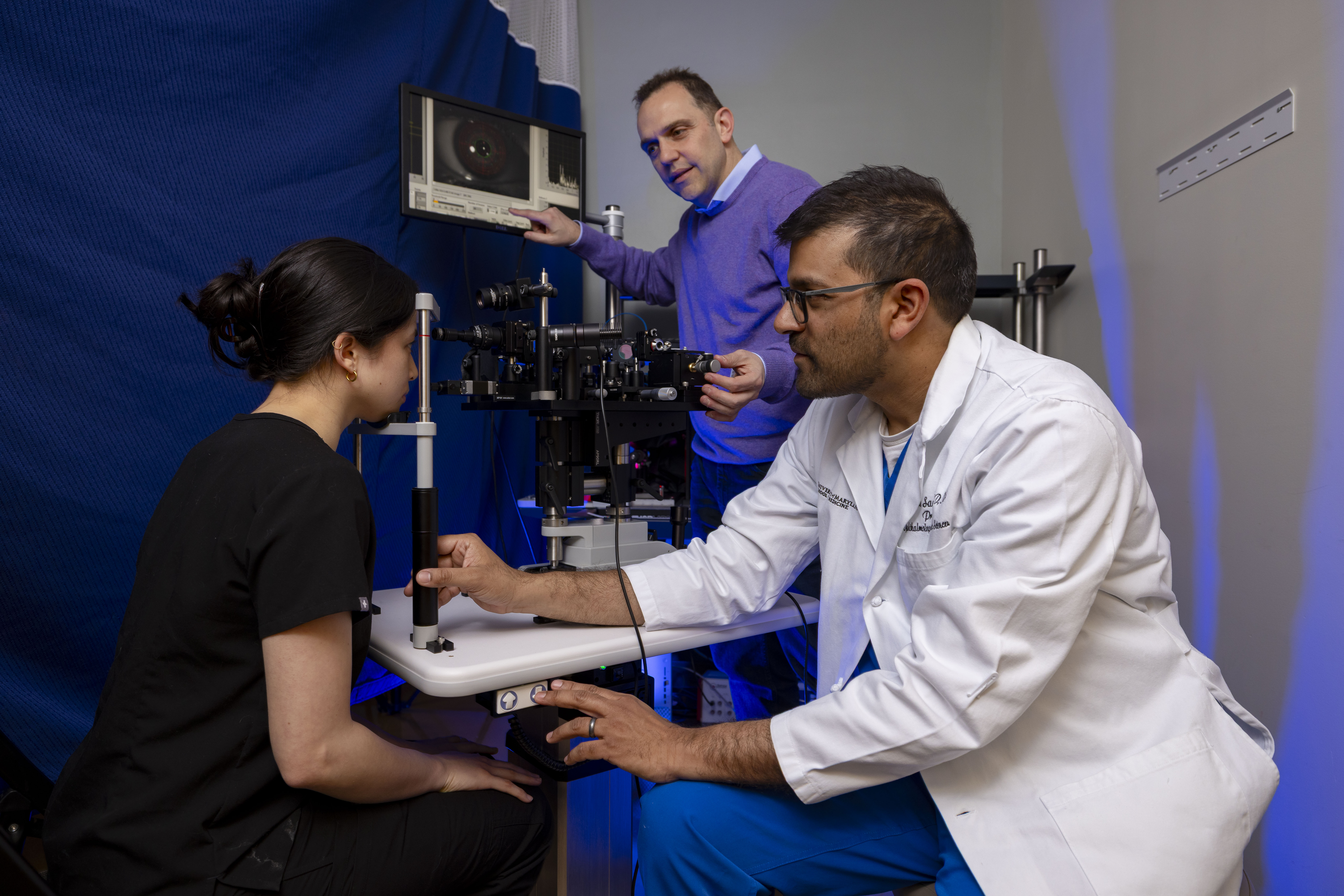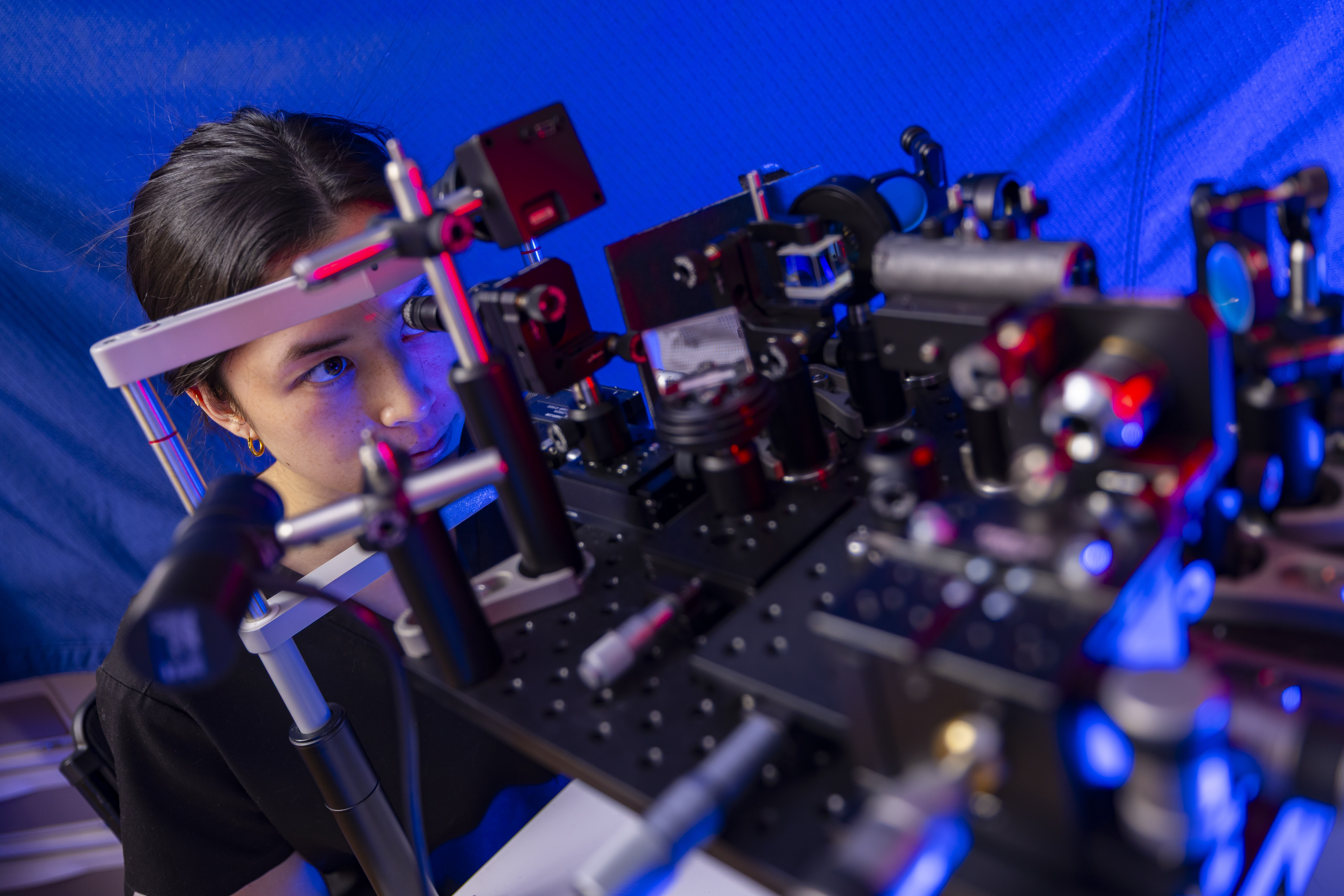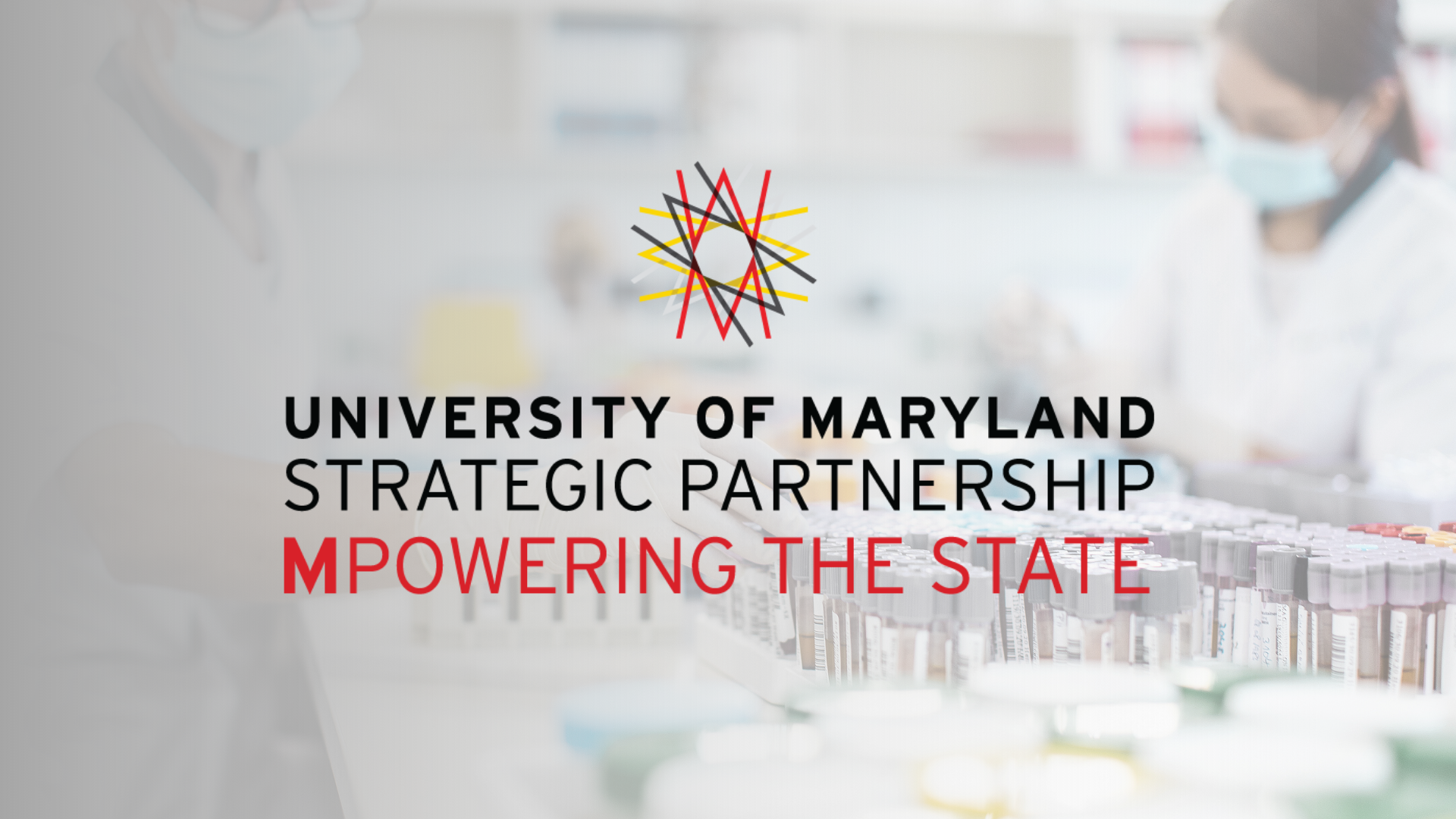Eight Faculty, Three Years of Lifesaving Collaborations
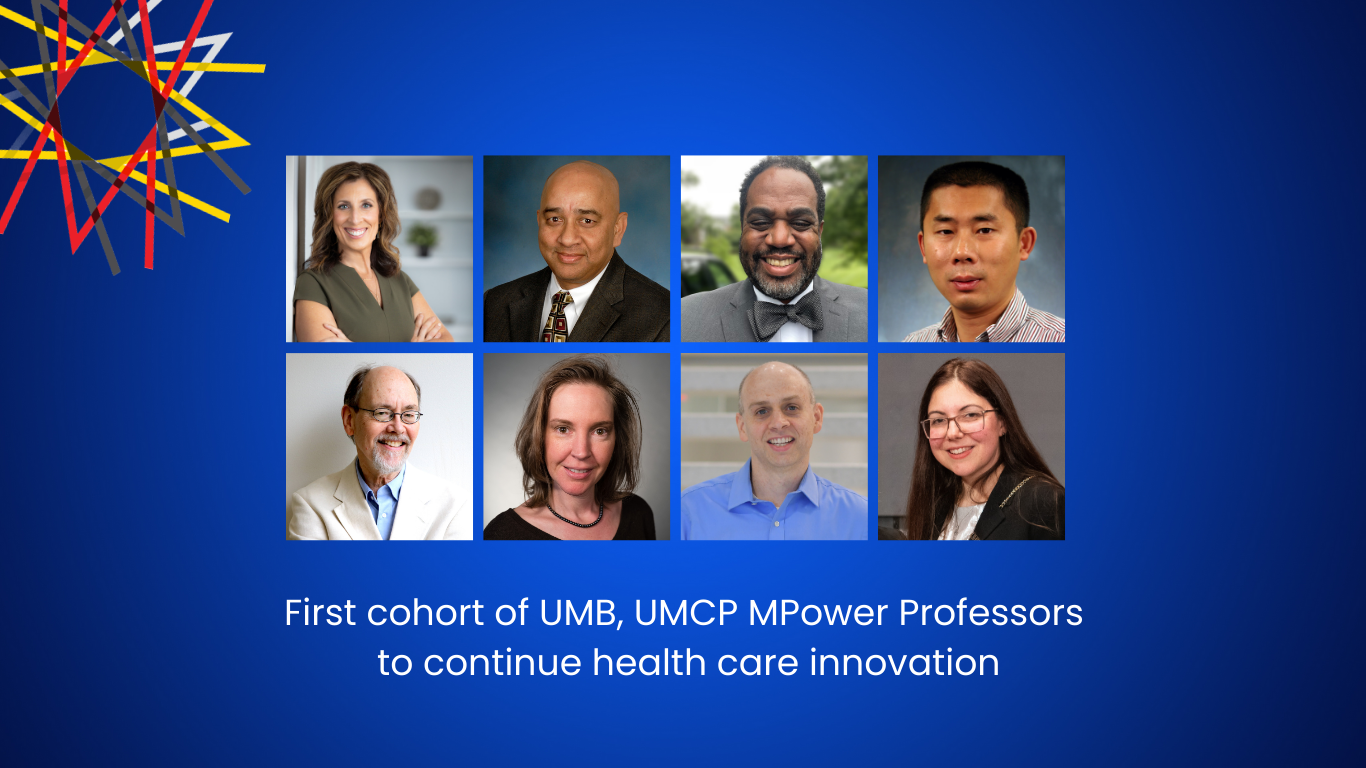
Pictured: (L to R) Deanna Kelly, Rao Gullapalli, Joseph Richardson Jr., Bruce Yu (Row 1), Donald Milton, Cheryl Knott, Christopher Jewell, Luana Colloca (Row 2).
By: Ashley DeMaio & Kaitlyn Tilley
Improving drug safety. Tracking the transmission of airborne diseases. Mapping neighborhood health risks. Research in these three areas and five more in medicine and public health has made important strides through a program supported by the University of Maryland, Baltimore (UMB) and the University of Maryland, College Park (UMCP).
The MPower Professorship was launched in 2021 to recognize, incentivize and support collaboration among faculty at the two institutions. The inaugural cohort included eight faculty — four from each university — who each received $150,000 over three years to address some of the nation’s most pressing challenges, ones that demand the combined strengths of both universities.
UMB President Bruce E. Jarrell, MD, FACS, and UMCP President Darryll J. Pines, PhD, MS, have championed the professorship, one of several initiatives advanced through the University of Maryland Strategic Partnership: MPowering the State, as a powerful example of how collaborations across campuses can drive innovation and impact.
The MPower Professorship “not only celebrates faculty’s commitment to pursuing transformative ideas,” Jarrell said, “it also opens up new possibilities to amplify the impact of their work.”
Added Pines: “The MPower Professorship is a unique opportunity for higher education scholars and researchers to come together and take on the problems that need our collective resources, creativity, and dedication. They are a prime example of how we can work together to take on the grand challenges of our time and continue to foster the life-changing innovations that impact lives not just in Maryland, but across the country and world.”
With its fourth cohort, the professorship has recognized 27 scholars. Now that their three-year term has concluded, the first cohort of faculty reflected on their achievements and how their spirit of collaboration continues to shape the future of research.
Luana Colloca, MD, PhD, MS, a professor in the Department of Pain and Translational Symptom Science at the University of Maryland School of Nursing (UMSON), has conducted groundbreaking studies on the placebo phenomenon that have advanced our understanding of the brain’s ability to regulate pain and led to the development of novel strategies such as virtual reality to optimize therapeutic outcomes.
By the time she was nominated as an MPower Professor, her research had launched into a four-way collaboration between two interdisciplinary labs at UMB and UMCP.
“What began as a cross-campus partnership has evolved into an integrated effort involving surgeons, engineers, patients’ partners, and musicians,” said Colloca, director of UMSON’s Placebo Beyond Opinions Center. “This convergence of expertise has been instrumental in shaping our research, now supported by two federal R01 grants.”
Her team has begun translating mechanistic research into patient-centered applications and randomized controlled trials, advancing science grounded in lived experience and clinical relevance.
Inaugural awardee Rao P. Gullapalli, PhD, MBA, MS, was a professor in the Department of Diagnostic Radiology and Nuclear Medicine at the University of Maryland School of Medicine (UMSOM) until his death in April 2023. He was an expert in developing magnetic resonance imaging techniques for clinical research.
Jiachen “Chenny” Zhuo, PhD, associate professor of diagnostic radiology and nuclear medicine and a leading member of Gullapalli’s lab, credits collaborations with colleagues at UMCP’s A. James Clark School of Engineering for helping tackle major challenges in the lab’s research. “UMCP brings essential engineering expertise that complements the clinical strengths of UMB,” she said.
Now the Gullapalli Lab is looking to advance magnetic resonance imaging methods and improve the characterization of traumatic brain injury to better predict patient outcomes. The team is also exploring new ways to scan the brain, which could help detect long-term brain damage.
Christopher M. Jewell, PhD, the Robert E. Fischell Professor of Translational Engineering at UMCP’s Clark School, noted that research supported by MPower contributed to the creation of Nodal Therapeutics, a startup he co-founded with Jonathan Bromberg, MD, PhD, professor of surgery and vice chair for research at UMSOM. The company is developing targeted therapies to stop autoimmune disease by retraining dysfunctional immune responses.
Nodal Therapeutics will play a key role in Jewell’s focus on developing a novel treatment using polymer scaffolds to selectively retrain inflammatory response.
Director of the Maryland Psychiatric Research Center at UMSOM and inaugural MPower Professor Deanna L. Kelly, PharmD, BCPP, played a pivotal role in the U.S. Food and Drug Administration (FDA) advisory committee’s decision to eliminate the risk evaluation and mitigation strategy program for clozapine. The removal of that time-consuming process eased access to schizophrenia medication for those who need it. The MPower Professorship empowered Kelly and her colleagues to lead national advocacy efforts that ultimately influenced the FDA’s decision.
With an understanding of how one’s diet can affect psychological symptoms of schizophrenia, Kelly plans to expand upon the nutritional and dietary interventions in metabolic psychiatry.
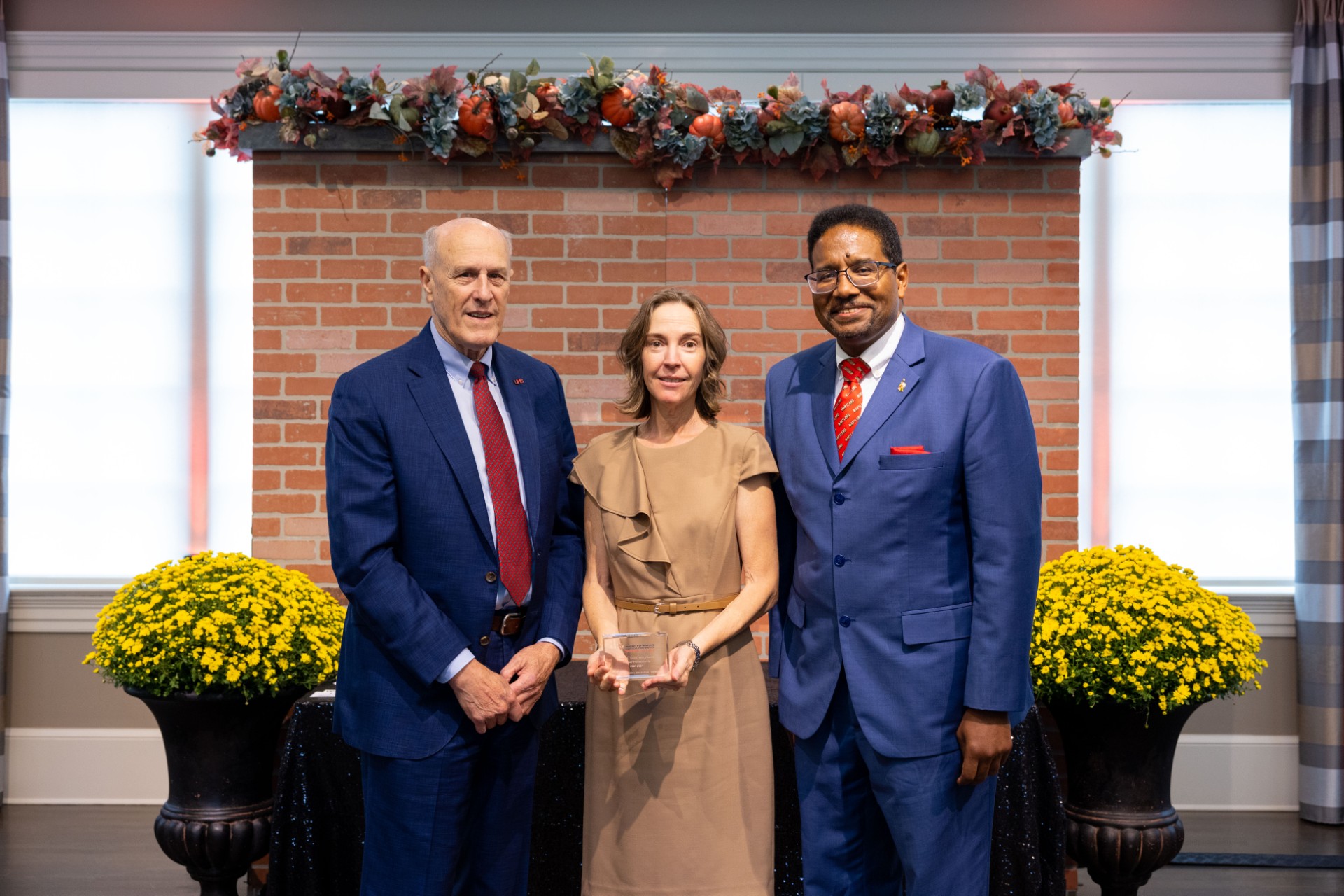
A research team led by Cheryl L. Knott, PhD, MA, a professor in the Department of Behavioral and Community Health in UMCP’s School of Public Health, developed and released a first-of-its-kind community engagement dashboard to identify and map multidimensional neighborhood health risks. With input from community voices, this dashboard will inform epidemiological and health promotion research in all areas of chronic disease, with wide-ranging applicability beyond health.
Knott plans to look further into how neighborhood-induced stressors influence lifestyle cancer risk and prevention behaviors, such as alcohol consumption or smoking habits. Her research methods will expand from the psychosocial model to biopsychosocial including biological samples in the study.
“We’re not just people doing excellent research. We’re committed to tackling the major societal challenges.”
Cheryl L. Knott, PhD, MA
The groundbreaking research by Distinguished University Professor Donald K. Milton, MD, DrPh, a professor of occupational and environmental health at the School of Public Health at UMCP, on airborne virus transmission has been deeply collaborative across UMB and UMCP. During the early days of the COVID-19 pandemic, he joined forces with UMB researchers. “We were one of the first groups to show that you can culture SARS-CoV-2 from breath,” he said.
His “Hotel Influenza” study, a landmark project funded by the National Institute of Allergy and Infectious Diseases, also relied on coordination between campuses, including quarantine logistics in Baltimore and flu screening at College Park.
As bioaerosol research continues to evolve, Milton is working to establish standardized terminology and definitions in the industry. “It’s clear that there needs to be more controlled conditions and to be able to say, ‘This is how it happens’ in a way that all scientific disciplines and medicine can agree on.”
Joseph Richardson Jr., PhD, MA, the Joel and Kim Feller Professor of African American Studies and Anthropology in UMCP’s College of Behavioral and Social Sciences, credits early collaborations with UMSOM for steering the trajectory of his research; it focuses on community violence interventions as well as firearm-related violence and trauma in young Black men and boys.
His mentor, Carnell Cooper, MD, a former trauma surgeon and professor at UMSOM, pioneered one of the first hospital-based violence intervention programs in the nation at the University of Maryland R Adams Cowley Shock Trauma Center. Their partnership laid the groundwork for Richardson’s research even before he was awarded the MPower Professorship. One such collaboration was a seed grant from the University of Maryland School of Pharmacy (UMSOP), which supported a gun violence study. Its findings informed the development and implementation of a hospital-based violence intervention program, where Richardson served as founding co-director.
Shifting his focus from young Black men, Richardson is looking to digital storytelling to tell the stories of Black women who have survived firearm violence as well as community firearm violence during the COVID-19 pandemic.
Yihua Bruce Yu, PhD, a professor in the Department of Pharmaceutical Sciences at UMSOP, broadened his research perspective while developing the concept of preventive pharmacovigilance with his team. Traditional drug safety catches problems after they happen. Yu and his team aim to stop problems before they start.
With funding from the MPower Professorship award, Yu engaged with global experts, revealing critical gaps in vaccine and pharmaceutical quality control that inspired his team’s work. “I was able to think about the big picture,” he said. By enabling early checks of medicine quality at the doctor’s office or pharmacy, his work has the potential to shift drug and vaccine safety from reactive to proactive.
Yu and his team are now leveraging water Nuclear Magnetic Resonance (wNMR) technology for pediatric vaccine quality control as well as gene and cell therapy products.

